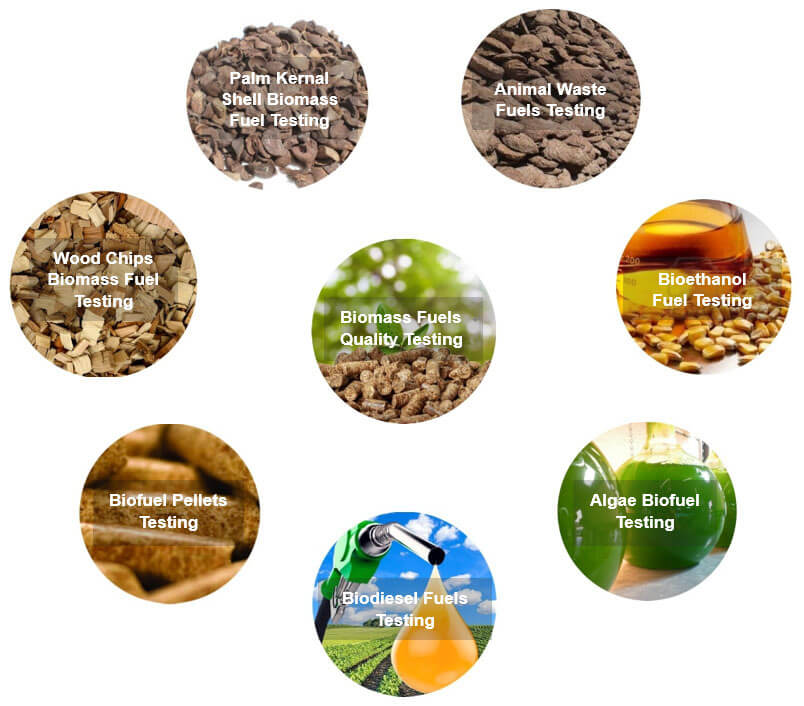Biomass fuels, also known as non-conventional or solid fuels, are any organic materials or substances that can be used as fuels to create electricity or other forms of power. Biomass comes from a variety of sources which include forestry crops and residues, agricultural crops and residues, industrial wastes, municipal solid wastes, animal residues, and so on. Generally, two categories of biomass fuels from woody fuels and animal wastes comprise the vast majority of available biomass fuels. Compared to conventional fuels, such as fossil fuels and petroleum fuels, biomass fuels have the characteristic of low energy densities. In other words, it is required a significantly large volume of biomass fuel to generate the same energy as a smaller volume of conventional fuel. However, biomass fuels are mainly biodegradable substances which are more greener and more eco-friendly than conventional fuels, producing less harmful emission gases. The usage of biomass fuels offers many significant environmental and consumer benefits, including improving forest health, protecting air quality, and offering the most dependable renewable energy sources. New technologies and advancements in the biomass fuel field have enabled industries to adapt to newer biodegradable and eco-friendly fuels.
 Figure 1. Quality testing of biomass fuel.
Figure 1. Quality testing of biomass fuel.
The rapid growth of the biomass fuel market is creating an increased demand for analysis and testing to ensure high quality and consistent products for manufacturers and buyers. As a leading company in biomass fuels quality testing, Lifeasible has the biomass fuels testing laboratory with the capability of performing analysis complying with international standards such as ASTM, IP, API, EN, ISO, and EPA. We have a wealth of experience to do quality testing of biomass fuels on a wide range of parameters, which include, but not limited to:
Our quality assurance expertise supports a variety of biomass fuels quality inspection from solid, liquid to gas biomass fuels, including:
Palm Kernal Shell Biomass Fuel Testing
It is a well-known biomass product because of its small size and high heat energy or calorific value.
We provide tailored palm kernel shell biomass fuel testing services including energy characteristics (net calorific value, total moisture content, ash content, etc.) analysis, chlorine and sulphur content analysis, and biodegradable fraction content analysis.
Wood Chips Biomass Fuel Testing
We provide high-quality wood chips biomass fuel testing services, which determine the physical and chemical properties (moisture content, ash content, particle size, bulk density, nitrogen content, chlorine content, sulphur content, trace metals, etc.)
Biofuel pellets are produced from mixtures of various biomass waste products (from forestry and farming), such as wood, plant fibers, waste paper, etc., added binding agents and anti-slagging additives. We provide professional biofuel pellet quality testing services covering ash content, calorific value, chloride content, durability, mechanical strength, moisture content, sulphur content, pH, proximate analysis, trace metals analysis, etc.
Biodiesel is an alternative fuel for diesel engines that is produced by chemically reacting a vegetable oil or animal fat with an alcohol such as methanol. We provide an extensive range of biodiesel fuel inspection and testing services including quality confirmation, trace residual testing, biomass testing, glycerol testing, contamination analysis, etc.
Most strains of algae are photosynthetic and represent the world’s fastest growing plants. They can be used as sources of biofuels, such as biodiesel, bioethanol, butane, plastics, and biochemicals. We provide a number of algae biofuel testing services covering micro-algae growth rate determination, maximize oil content, silicon content, metals content, CHNO (carbon, hydrogen, nitrogen, and oxygen) analysis, composition analysis, etc.
Bioethanol, also known as ethyl alcohol, is a kind of alcohol derived from certain plants, such as corn, sugarcane, and grain or indirectly from paper waste. We provide comprehensive bioethanol fuel testing service items including Acidity; Alcoholic strength; API gravity; Appearance, visual, color; Chlorides; Composition; Copper; Denaturant; Denatured fuel ethanol for blending with gasoline; Denaturant testing for aromatics, benzene, and olefins; Diethyl phthalate content; Electrical conductivity; Ethanol, higher saturated alcohols; Evaporative residue; Gum.
Biomass conversion technologies, such as combustion, anaerobic digestion, and composting, present attractive options for mitigating many of the environmental problems of manure wastes. We provide quality control of a wide range of animal waste fuels.
We are devoted to meeting our customers’ challenges and expectations. You will benefit from our extensive testing capabilities and investigative approaches. Welcome to contact us for questions or inquiries, we will be more than happy to help you.
Lifeasible has established a one-stop service platform for plants. In addition to obtaining customized solutions for plant genetic engineering, customers can also conduct follow-up analysis and research on plants through our analysis platform. The analytical services we provide include but are not limited to the following:
STU-CRISPR System Improves Plant Genome Editing Efficiency
April 19, 2024
Application of Exosomes in Facial Beauty
April 12, 2024